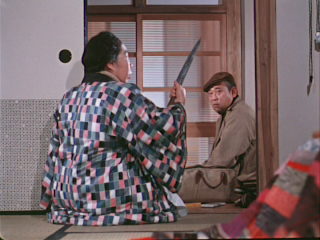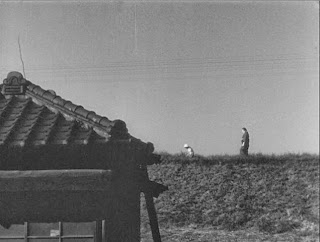
The year is waning fast. I figure I should put up one more post though. It has been a very eventful year - blizzards, the Red Sox, wickedness, personal loss - in a year in which I passed one of those milestone birthdays people get worked up about (not that I am about to admit which one, though anyone following my band series might be able to hazard a guess, from the dates referred to here and there...) It was a momentous year, with anniversaries and birthdays, deaths, retirements of friends at work, things that brought out reminiscences and considerations of events - and things like the trip my brothers and I made to Ellsworth ME, to find our great- (and great-great-) grandparents' graves.
All of which makes me more inclined than usual to post something like this, looking back, maybe looking ahead. It was an eventful year - a reasonably satisfying one, in a way. I don't usually post things like resolutions or goals for the next year - but if I had last year, I would have ended up reasonably happy with the results. Just thinking about the blog - I have stopped writing film reviews for some reason, and stopped writing about politics (though I think about politics more than is healthy) - but I am rather pleased (and a bit relieved) that I have kept up with my Civil War posts, with those band of the month posts, with the director of the month posts (though I've missed the last couple - holiday congestion, call it; I should be back at it in the new year. Not sure what kind of theme I will pursue - though I suspect I know where I will start...) I hope this continues in 2014 - I see no reason not to keep it up. I have music and civil war posts already in the pipeline, so things should proceed. And I imagine I will pick up another anniversary series this year - I have been diligent in making Armistice Day posts every year - 2014 is the 100th anniversary of The Great War, an event that, I think, was as definitive for Europe as the Civil War was for the United States. Everything since revolves around it, to this day, we are still working out its aftermath. (Just as the US is for the Civil War.) I don't actually know as much about WWI going in as I did about the Civil War - that sounds like an invitation to find out all I can, and I hope I can share it as I go.
This might turn into a history blog, after having spells as a political blog, mostly a film blog, though always a bit of a music blog. Why not? I have been reading history the last couple years - Civil War mostly, though lately I've been reading Elizabeth Eisenstein's The Printing Revolution in Early Modern Europe - a fascinating subject itself. But - I do hope this year to get back to more film reviews - and for that matter, more politics.
I can't get away from politics. I have been inclined to try to avoid it lately - it's been very depressing these past few years. But - you can't get away from politics; I certainly think about it enough. I could have plenty opt opportunities to argue about it, particularly on Facebook - though that is a soul destroying forum for any kind of serious conversation. Just this week I had a bit of a conversation - someone posted a meme about how the Republicans passed the 13th, 14th and 15th amendments with almost no Democratic support - and now, the Democrats passed Obamacare with no Republican support. It would have been hard to figure out the intended point, if the thing hadn't included an anti-Hillary Clinton bit: seems to have been a Republican source trying to resurrect their past as the sensible party. It's not very effective - though one certainly can feel the irony of the party of Lincoln becoming the party of Jeff Davis. Parties change - it is fascinating to see how the Republicans and Democrats have reversed themselves so completely, and almost perfectly. Still - the conversation that ensued ended with someone making one of those weaselly both-sides-do-it, what-is-the-difference complaints - a complaint given the lie by the graphic itself. Obamacare passed with 0 Republican votes - whether you think the ACA is a good thing or bad thing, it's pretty clear that it is part of a very different set of policies between the party.
And that is true - party discipline is about as strong right now as it has ever been in the US (especially among the Republicans; the Democrats are a bigger, broader party - their positions and orthodoxies are a lot less rigid.) And I was thinking about it - I can list off a dozen or so policies I would like to see: and most are official Democratic positions, and the others have supporters among Democrats; none (almost) have any support from the Republicans at all. I wonder how often, in American history, that would have been true? that policies I like would be almost exclusively associated with one party?
I mean it - here are some examples, things I would like to see:
Higher minimum wage
Higher top marginal and corporate tax rates
Expended social security and medicare and Medicaid
Expanded benefits for food stamps and other programs
More spending on education
More spending on infrastructure
Better health insurance systems
Climate change projects
Gay marriage
Stronger unions
Stronger regulation of banks and financials and corporations
Prosecution of bankers etc. for the more egregious offenses
Reining in the security state
Of those - everything down to stronger unions are basically positions held and advanced by Democrats, and opposed by Republicans. The strength of the party positions varies, the parties may have different priorities - but those positions are all clearly aligned with one party or the other.
The bits about bankers and corporations goes quite a ways beyond the official Democratic party - but plenty of actual Democrats (my senior Senator, prominently!) push for those kinds of policies.
The security state - NSA spying, drones, all that crap - is about the only item on the list where I radically part company with the Democrats. It's an issue that you will hear Republicans weigh in - though to be honest, I don't believe a word of that. Rand Paul can say what he wants to now, but if he were to get elected president in 2016, I hope no one will be shocked to find that he's as enthusiastic a war monger and authoritarian as any other Republican. (Or way too many Democrats.)
BUt the point of this is - well: two things. First - that parties matter, whether you like it or not. And second - imagine me trying to make this case on Facebook, a sentence at a time. It's hopeless! I can't do anything in a sentence at a time. I need 1000 words!
So consider yourself warned.
And so - I have managed to time this almost perfectly to finish on the stroke of midnight - or 11:59 I hope, so this hits 2013 not 2014. I will leave you with another cat - a carving of a lion in Copley Square. Happy new year, everyone!


























